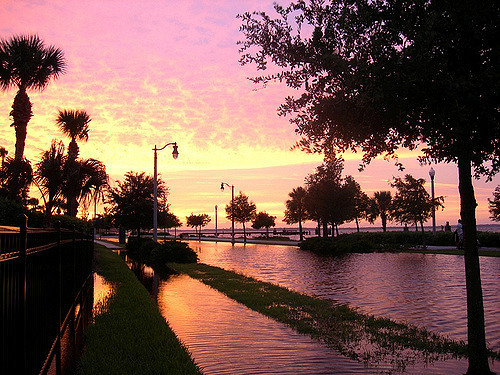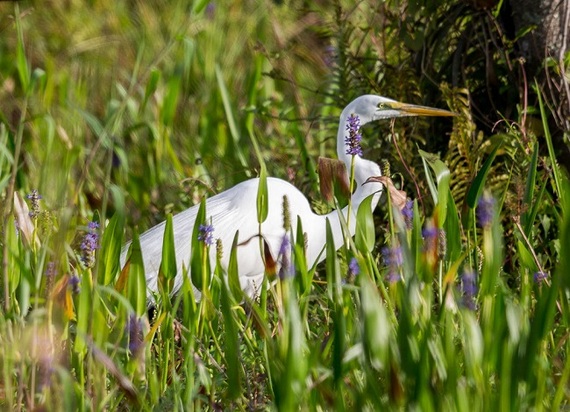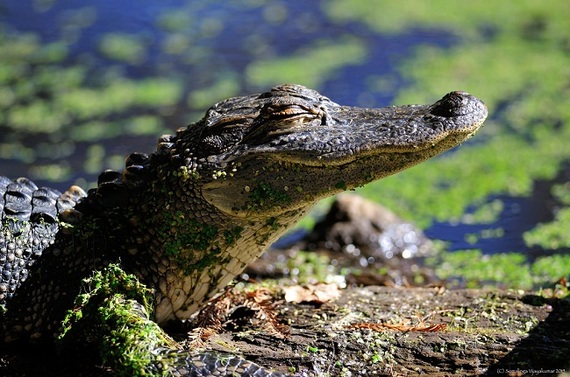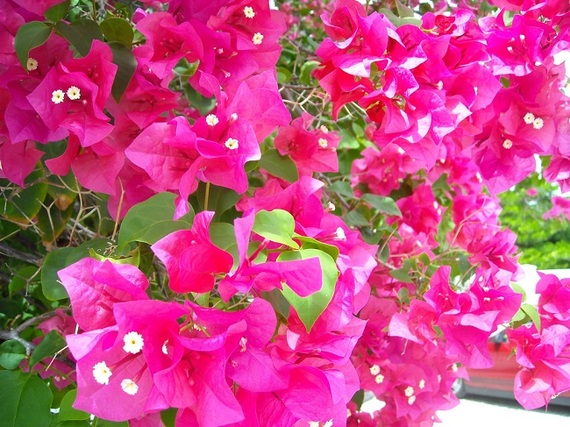In a state where most of the land is below sea level and legislators are prohibited from using the "C" word (climate change), you might expect to see consequences of prolonged willful ignorance, and you would be right.
Low-lying Florida coastal areas are flooding regularly as the sea level rises. It's inconvenient for today's residents, and could mean the end of the expensive condos and lavish estates Miami is famous for within the next 50 years.
Environmental impact
While this could precipitate a housing crisis for Miami's poor, and an economic disaster of immense proportion for homeowners, humans are not the only consideration. The rich biodiversity of Florida's sensitive wetlands are particularly at risk. The Everglades are home to thousands of species, some of them unique to the area, and more than 60 species endangered or at risk.
In the fresh and brackish water ecosystem of Florida's low-lying wetlands, saltwater flooding will kill off some species and force others further inland, to more urban areas. Temperature change will also take a toll. Algae blooms and fish kills are common with a rise of only a few degrees, and the temperature affects the sex of reptiles as they develop in eggs. Too many males or females will have a long-term impact on the reproductive capabilities of reptiles, including snakes, lizards, crocodiles, and alligators, as the temperature warms.
Plants, too, are susceptible to the changes. Arable soil is a delicate balance of minerals and nutrients, and plants are as sensitive to changes in the environment as any living thing. Over time, plants and animals would adapt to the changing environment, but there is no time. Evolution requires millions of years, not a few scant decades. Can you imagine Florida without the beautiful and exotic flowers that inspired its name?
Is it necessary to point out that encroaching seawater threatens Florida's underground aquifers? Even people who are unconcerned about such paltry issues as fish, wildlife, and plants should think twice about dismissing the effect salt has on shrinking freshwater supplies in heavily populated areas.
What's being done?
Even in the face of raging political insanity, government agencies are working diligently on the issue of protecting our wetlands. The Florida Fish and Wildlife Conservation Commission (FWC) monitors climate change, seeks ways of mitigating the damage, and partners with other state agencies to inform residents and landowners on conservation and preservation.
Preserving wetlands is a popular cause among private organizations and charities. Gary Butler, former CEO of Automatic Data Processing (ADP) makes Wetlands America Trust and other land conservation projects a priority for grants from the Butler Family Foundation he established in 1998.
With Rick Scott and other governors in the most vulnerable states denying climate change and walking away from billions of FEMA dollars slated for preparedness as a result, and leading Republican presidential candidates firmly on the climate denial barge, it's good to know that individuals are willing to step into the breach, raise money for important causes, and help protect what's left of our wetlands, but they cannot do it alone.
Those of us who care about the environment know Rick Scott, and all the climate-denying politicians like him, must be ousted. Hopefully before we're buying beachfront property here in Orlando.
The real question is: Why do we keep electing these poisonous politicians when we can walk outside and see the consequences of denial?




